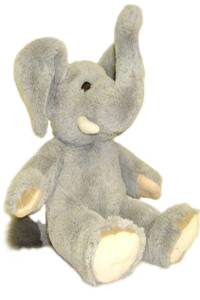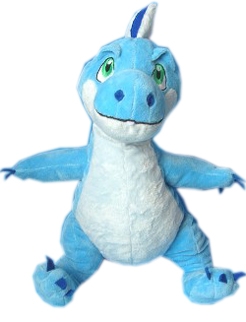You see it every day…a child playing make-believe with their stuffed animals. These animals become accessories to the imaginations of children. From dolls and animals in dress up attire to plush animals acting out scenes like those in fantasy or science fiction. Depending on the age of the child, these stuffed animals might be involved in elaborate plot lines or just sitting down for light conversation at high tea. What this means for the child is companionship, development and the ability to feel in control. To the stuffed animal, it means having a purpose!
 This kind of play is known as dramatic play and it refers to the made up games that children enjoy. When adults witness it, they see a child acting cute while playing with stuffed animals and other non-living friends. But to a child involved in dramatic playing, the world that is created fosters their abilities to learn and develop. This is an imaginary world that supports intellectual growth and builds social and verbal skills.
This kind of play is known as dramatic play and it refers to the made up games that children enjoy. When adults witness it, they see a child acting cute while playing with stuffed animals and other non-living friends. But to a child involved in dramatic playing, the world that is created fosters their abilities to learn and develop. This is an imaginary world that supports intellectual growth and builds social and verbal skills.
It may seem like just fun and games in a make-believe environment, but dramatic play with stuffed animals is rooted in psychology.
During this type of play, children are acting out scenes from their own day-to-day lives, albeit, they are not entirely cognizant of that. They may be acting out, or reliving the things they’ve witnessed or participated in with their stuffed animals. That’s why some toddlers and young children carry their dolls and stuffed animals around like babies and why they mimic the coos that parents often do if there is a younger sibling at home.
 Sometimes young ones will scold a stuffed animal or doll as if it were a living thing if the child remembers being scolded or told “no” about something. The latter type of mimicking behavior should not be alarming unless accompanied by other negative behaviors or if it is the only type of dramatic play the child tends to participate in.
Sometimes young ones will scold a stuffed animal or doll as if it were a living thing if the child remembers being scolded or told “no” about something. The latter type of mimicking behavior should not be alarming unless accompanied by other negative behaviors or if it is the only type of dramatic play the child tends to participate in.
Otherwise, watching a child act out real life scenes with a stuffed animal can be a great way to see how they are developing and how their minds are expanding. It is the first step towards gaining more in-depth play and learning how to form thoughts and relationships.
So, the next time you see a little one sitting down for tea with a stuffed animal or solving a crime with a beloved plush friend, take a moment to listen in; you’ll discover that there is a lot more going on!